Steve Jobs once said, ‘The only way to do great work is to love what you do.’ This timeless wisdom is at the heart of career assessments.
By guiding individuals toward careers that align with their strengths and passions, career assessment tests serve as bridges to fulfilling professional journeys and lives.
This blog post explores what a career assessment is and explains its critical role, types, benefits, and more.
Our guide offers insights for educators, career advisors, and HR professionals, focusing on their integral role in developing career assessments.
Let’s dive in.
What Is a Career Assessment?
Career assessment is a process that involves evaluating an individual’s skills, interests, aptitudes, values, and personality traits to determine their career potential and make informed career decisions. It helps individuals gain clarity and direction in choosing a career path that aligns with their strengths and goals.
It can have several elements, such as:
- Self-assessment: This involves identifying and understanding one’s interests, values, skills, and personality traits. This can be done through self-reflection, career quizzes, or aptitude tests.
- Career exploration: Once individuals better understand themselves, they can explore different career options that match their skills and interests. They can gather information about different industries, job roles, and work environments.
- Assessing market demand: Assessing the market demand for specific careers is crucial. This includes researching current and future job trends, salary information, and growth opportunities in different industries.
- Setting goals: Based on the self assessment and career exploration, individuals can set realistic and achievable career goals. This involves identifying short-term and long-term objectives and creating an action plan to reach them.
Let’s understand this with an example:
A high school student wants to pursue a healthcare career.
They can undergo career assessment by taking career quizzes and aptitude tests to identify their areas of interest and strengths.

Based on the results, they can explore different professions and gather information about the educational requirements, job prospects, and potential for growth in those fields.
They can also seek guidance from career counselors or professionals in the healthcare industry. Ultimately, they can set goals, such as completing the required education and gaining relevant experience.
Here’s an example of a career assessment quiz:
How Are Career Assessments Used?
Career assessments can be used differently in different settings. Here are some ways in which career assessments can be used:
- Career Exploration: Career assessments offer individuals valuable insights into their interests, skills, and values, allowing them to explore a diverse range of potential career paths they may not have considered before.
- Educational Guidance: In educational settings, career assessments are invaluable tools for guiding students toward well-informed decisions about their majors or areas of study. Career assessment for students can be the first step in helping them identify their strengths.
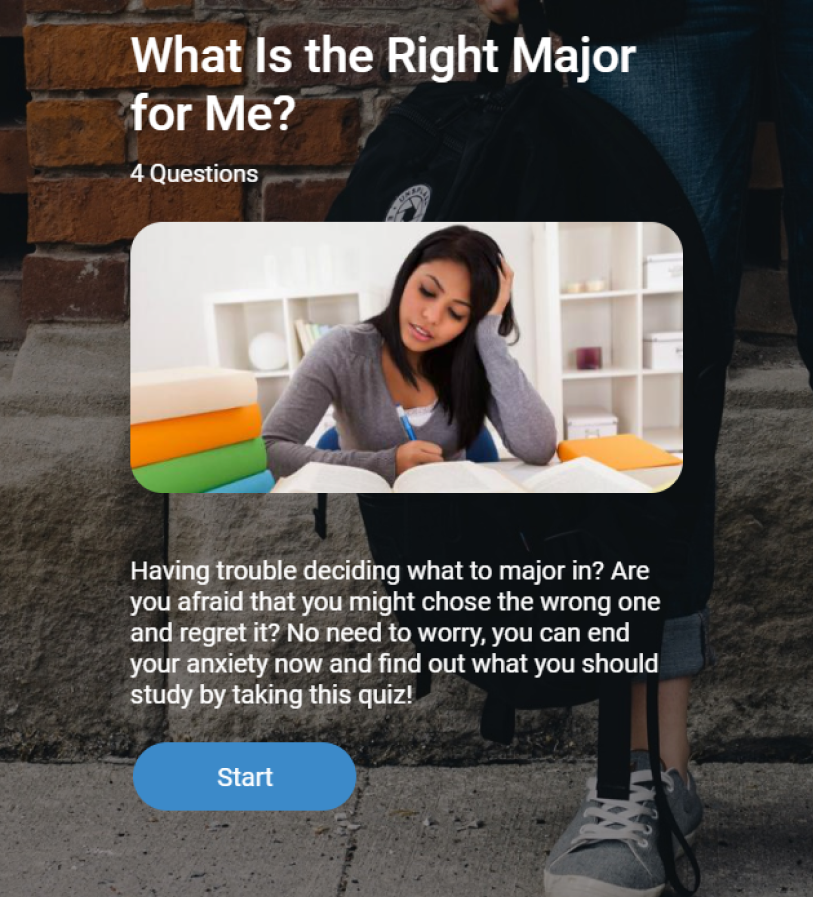
- Career Counseling: Using career assessments, skilled counselors can effectively support individuals in their career decision-making process. These assessments help uncover and analyze each person’s unique strengths, weaknesses, and preferences.
- Self-Awareness: Career assessments foster self-awareness by providing individuals with detailed insights into their motivations, values, and preferences. This heightened self-awareness empowers individuals to make well-informed career decisions, capitalize on their strengths, and proactively pursue opportunities that align with their personal and professional aspirations.
- Recruitment and Hiring: Psychometric assessments have become increasingly popular in the recruitment and hiring process as they provide employers with valuable information about candidates’ skills, personality traits, and cultural fit.
- Employee Development: Career assessments play a crucial role in employee development by enabling individuals to understand their strengths and improvement areas. By identifying skill gaps or areas that require further honing, assessments can guide employees and their employers in creating tailored training and development plans.
- Succession Planning: Career assessments can be used in leadership & succession planning processes within organizations to identify potential leaders for key roles.
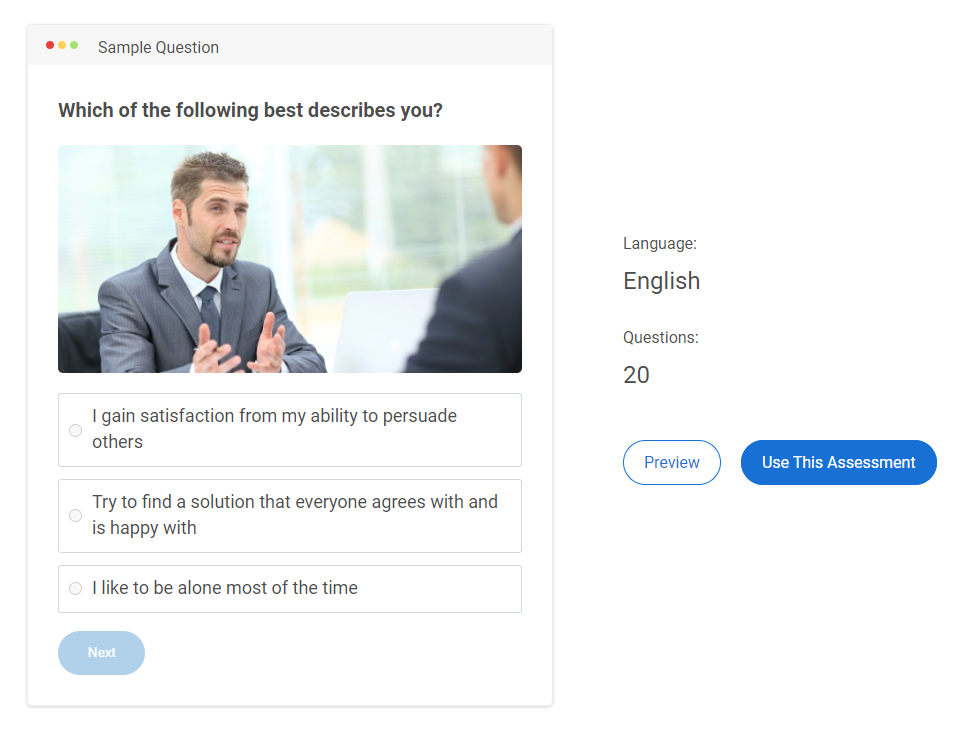
Types & Examples of Career Assessment Tests
Career assessment tests can be classified into these major types:
- Interest-Based Tests
By taking assessments, individuals can discover their interests and find out what careers suit them best. These assessments help them match their passions with potential occupations.
- Personality Tests
These assessments analyze an individual’s personality traits, such as introversion, extraversion, openness, conscientiousness, etc. These traits affect how an individual works and interacts with others. Personality tests help them choose careers that fit their personality.

- Skills Assessment
These assessments evaluate an individual’s skills in various domains, such as communication, problem-solving, teamwork, etc. These skills are essential for performing well in different jobs. These assessments help them identify their strengths and weaknesses and plan their career accordingly.
- Values Assessment
These assessments explore an individual’s core values, such as autonomy, security, achievement, etc. These values reflect what an individual cares about and what motivates them. These assessments help them select careers that align with their values and goals.
- Aptitude Tests
These assessments test an individual’s natural abilities and potential for learning in specific areas, such as verbal, numerical, spatial, mechanical, etc. These abilities indicate how well an individual can perform in certain fields or occupations. These assessments help them determine their aptitude for different careers.
If you’re seeking a versatile platform to conduct various types of career assessments, consider using an online quiz tool. With a tool like ProProfs Quiz Maker, you can effortlessly create engaging assessments to evaluate personality, skills, knowledge, and cognitive abilities.
Additionally, this software allows you to conduct video interviews flexibly, enabling assessment takers to respond to interview questions at their convenience.
Watch: How to Choose the Best Assessment Software
Related Read: 7 Best Career Assessment Tools & Software in 2024
What Are the Benefits of Career Assessment Tests?
Career assessment tests have various benefits. Here are some of them:
- Identification of Talents, Strengths & Weaknesses
Career assessment tests help individuals identify their talents, strengths, and weaknesses. Understanding these attributes enables individuals to make informed decisions about their career path and choose roles that align with their strengths.

- Increased Self-Awareness
Taking a career assessment test can enhance self-awareness by providing individuals with insights into their skills, interests, and personality traits. This self-awareness allows individuals to understand themselves better and make choices that align with their values and preferences.
- Clarity in Career Decision-Making
Career assessment tests provide individuals with clarity in making career decisions. By highlighting their strengths, interests, and values, these tests help individuals narrow down career options and choose paths that align with their aspirations.
- Guidance in Career Planning
Career assessment tests offer guidance in career planning by providing individuals with information about potential career paths and industries that match their profile. This information enables individuals to explore various career options and make informed decisions about their future.
- Enhances Career Satisfaction
By providing individuals with insights into their skills, interests, and personality, career assessment tests can increase career satisfaction. When individuals choose a career that aligns with their strengths and interests, they are more likely to experience fulfillment and satisfaction in their work.
FREE. All Features. FOREVER!
Try our Forever FREE account with all premium features!
How Career Assessments Align With Educational & Professional Goals
| “Find out what you like doing best and get someone to pay you for doing it.” — Katharine Whitehorn, British journalist and author |
Career assessments play a crucial role in aligning educational and professional goals by providing individuals with valuable insights into their interests, strengths, and values.
Here are some ways career assessments align with education and professional goals.
- Increased Goal Achievement
People who write down their goals are 20% more likely to succeed. Career assessments guide individuals in clarifying their thoughts, enabling them to set specific and actionable goals that align with their aspirations and values.
- Career Exploration
Career assessments help individuals explore different career options and industries based on their interests, skills, and values. By understanding their preferences and strengths, individuals can make informed decisions about educational and professional paths that are well-suited to their goals.
- Self-Awareness & Personal Development
Assessments give individuals insights into their personality traits, strengths, and weaknesses. This self-awareness allows individuals to focus on improvement areas and leverage their strengths to pursue educational and professional opportunities that align with their abilities and aspirations.
- Optimal Job Fit
Assessments aid in identifying a career path that aligns with an individual’s skills and interests, ensuring a better job fit. By aligning educational choices and professional goals with unique traits, individuals can pursue fulfilling and satisfying careers.
- Enhanced Career Planning & Advancement
Career assessments help individuals identify areas for development and tailor their educational and professional goals accordingly. Individuals can plan and take proactive steps toward career advancement by aligning their educational pursuits and professional goals with their assessment results.
Related Read: How to Create an Online Assessment for Business or Education
5 Best Career Assessment Tests to Find the Right Career
Several career assessment tests are available to help individuals identify the right career path for them. Here are five widely recognized and reputable career assessment tests:
- Myers-Briggs Type Indicator (MBTI)
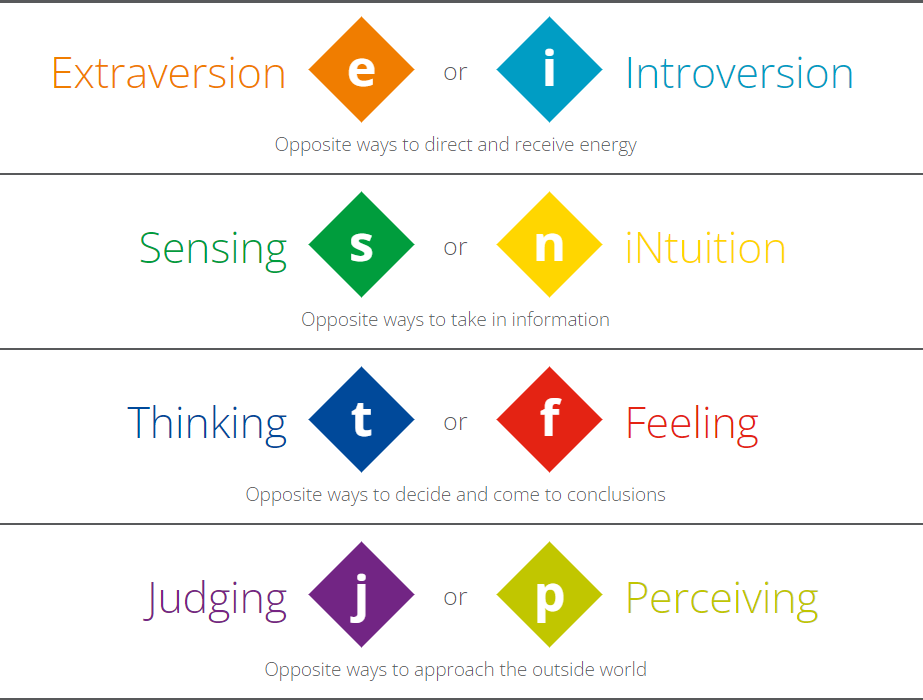
Image Source: themyersbriggs.com
Myers-Briggs Type Indicator is one of the most popular career assessment tests, which categorizes individuals into 16 different personality types based on their preferences in four main areas: extraversion/introversion, sensing/intuition, thinking/feeling, and judging/perceiving.
It provides insights into work preferences, communication styles, and career fields that align with each personality type.
- Strong Interest Inventory (SII)
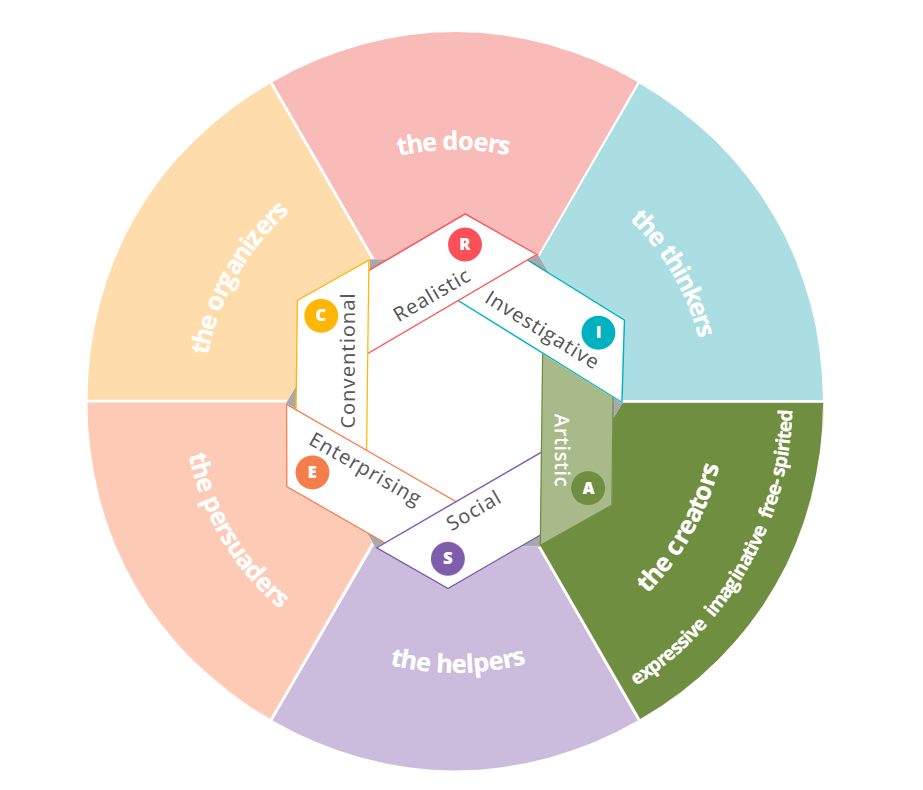
Image Source: themyersbriggs.com
The Strong Interest Inventory measures an individual’s interests across different occupational areas, helping them identify potential career paths that align with their interests. It matches an individual’s interests to specific job titles, industries, and work environments, providing a comprehensive report of suitable career options.
- Holland Codes Career Test
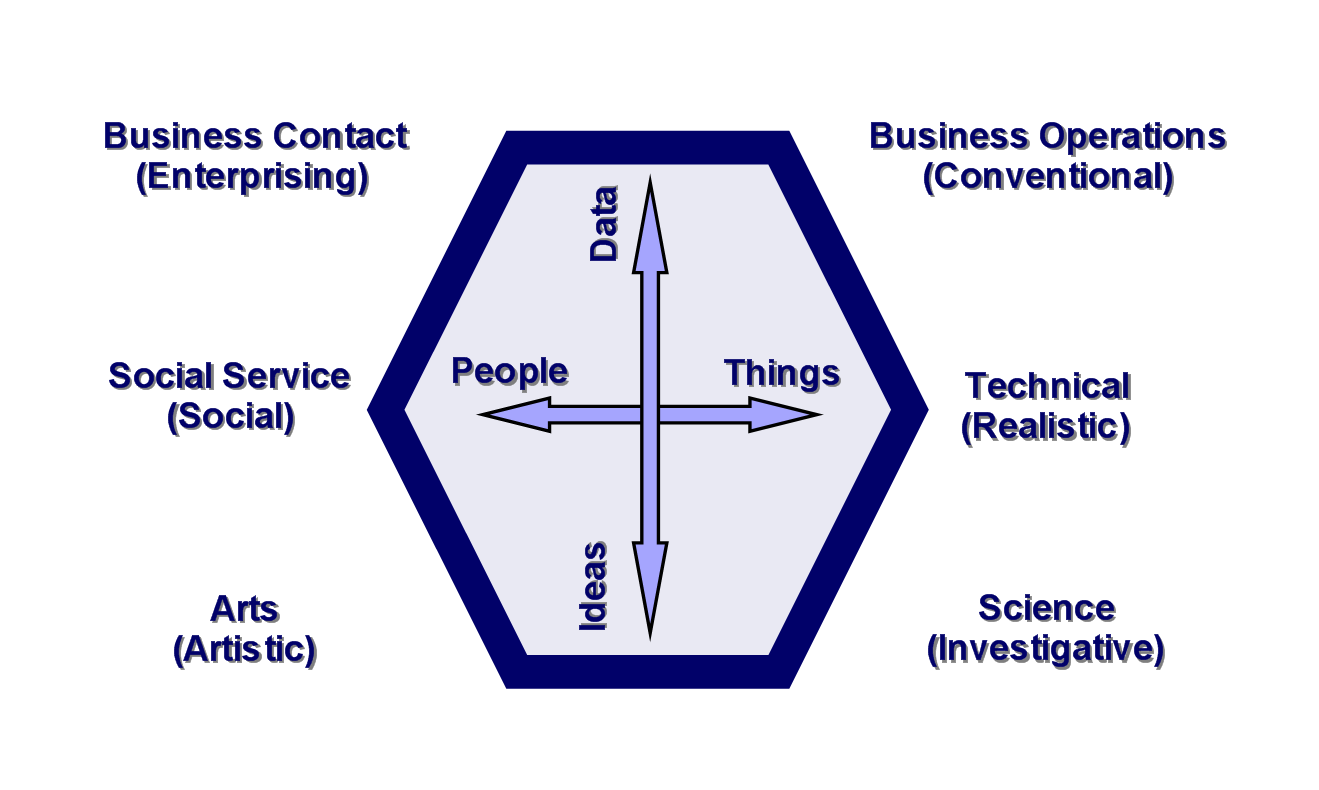
Image Source: hollandcodes.wordpress.com
The Holland Codes Career Test is based on the Holland Codes taxonomy, a widely accepted theory of career choice. This test assesses an individual’s interests and categorizes them into one or more of six personality types: Realistic, Investigative, Artistic, Social, Enterprising, and Conventional. These types are then matched to potential career options that align with each type.
- CliftonStrengths
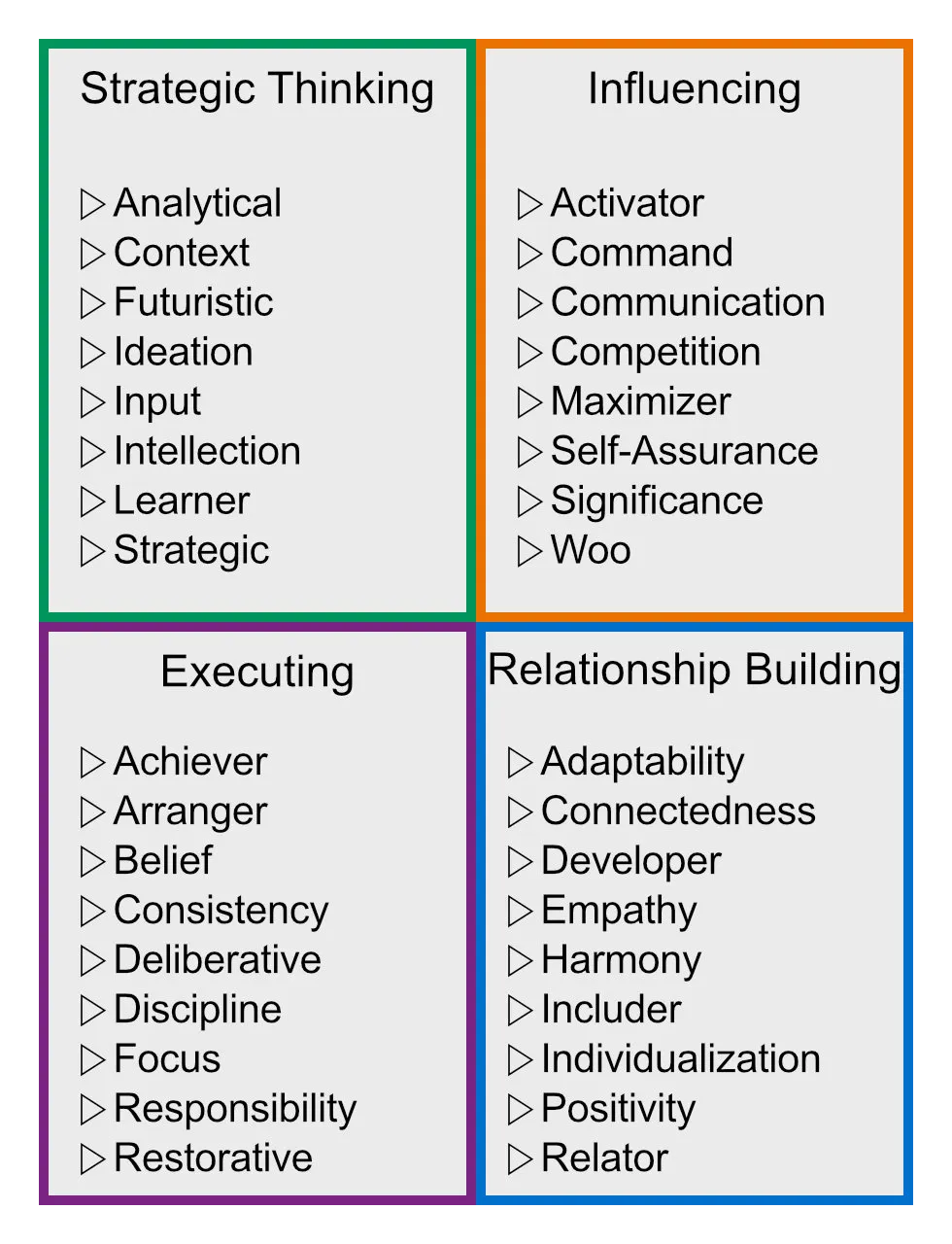
Image Source: jamifairleigh.com
The CliftonStrengths assessment (formerly known as the StrengthsFinder) identifies an individual’s top strengths among a list of 34 different talent themes. It provides valuable insights into an individual’s areas of natural talent, enabling them to pursue careers that allow them to leverage and develop these strengths.
- DISC Assessment
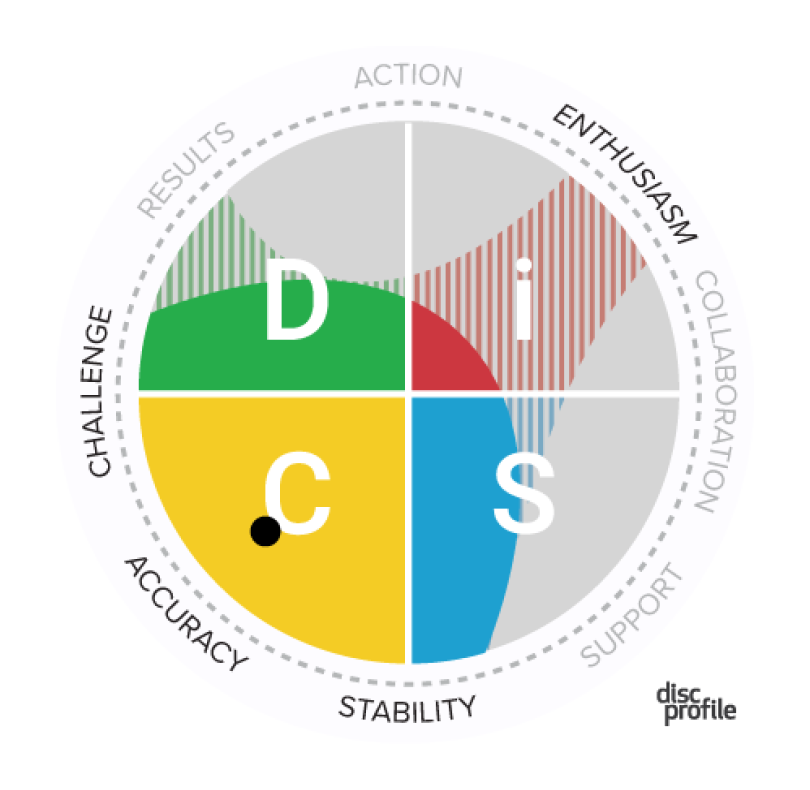
Image Source: discprofile.com
The DISC assessment measures an individual’s behavioral style across four dimensions: Dominance, Influence, Steadiness, and Compliance. It provides insights into an individual’s work preferences, communication styles, and potential career paths based on their dominant behavioral traits.
But these come with a disclaimer.
The assessments are tools to help individuals explore their career options and align with their interests, but they should be used as a starting point rather than the sole determinant of career choice.
Ready to Create a Career Assessment Test?
Career assessments can be a turning point in an individual’s life since they can help determine the career path they wish to pursue. They can also help them decide whether or not to continue with a particular career path.
While there are so many paid and free career assessment test generation tools available in the market, you can pick a sophisticated online assessment tool such as ProProfs Quiz Maker to generate quizzes and assess students or employees.
It has an advanced AI quiz maker that lets you generate quizzes on any topic in seconds and provides real-time reports and feedback to ensure better assistance when individuals weigh their career options.
Moreover, with ProProfs Quiz Maker, you can create free online career assessment tests using the forever free plan, which is ideal for short quizzes and includes all essential features.
Frequently Asked Questions
How many types of career assessments are there?
Here are 5 major types of career assessments:
- Interest-Based Tests: Help individuals discover careers that match their interests and passions.
- Personality Tests: Analyze traits to suggest careers that align with work style and interactions.
- Skills Assessments: Evaluate abilities in areas like communication and problem-solving to find careers that match an individual’s skill set.
- Values Assessments: Identify core values to find careers that align with personal priorities.
- Aptitude Tests: Measure natural talents to determine a suitable career path.
What are the best career assessment tools?
The best career assessment tools include the Myers-Briggs Type Indicator (MBTI) for personality-based guidance, the Strong Interest Inventory (SII) for interest alignment, and Holland Codes (RIASEC) for career matching. For creating custom tests, ProProfs Quiz Maker is a great choice for educators and HR professionals.


 We'd love your feedback!
We'd love your feedback! Thanks for your feedback!
Thanks for your feedback!







